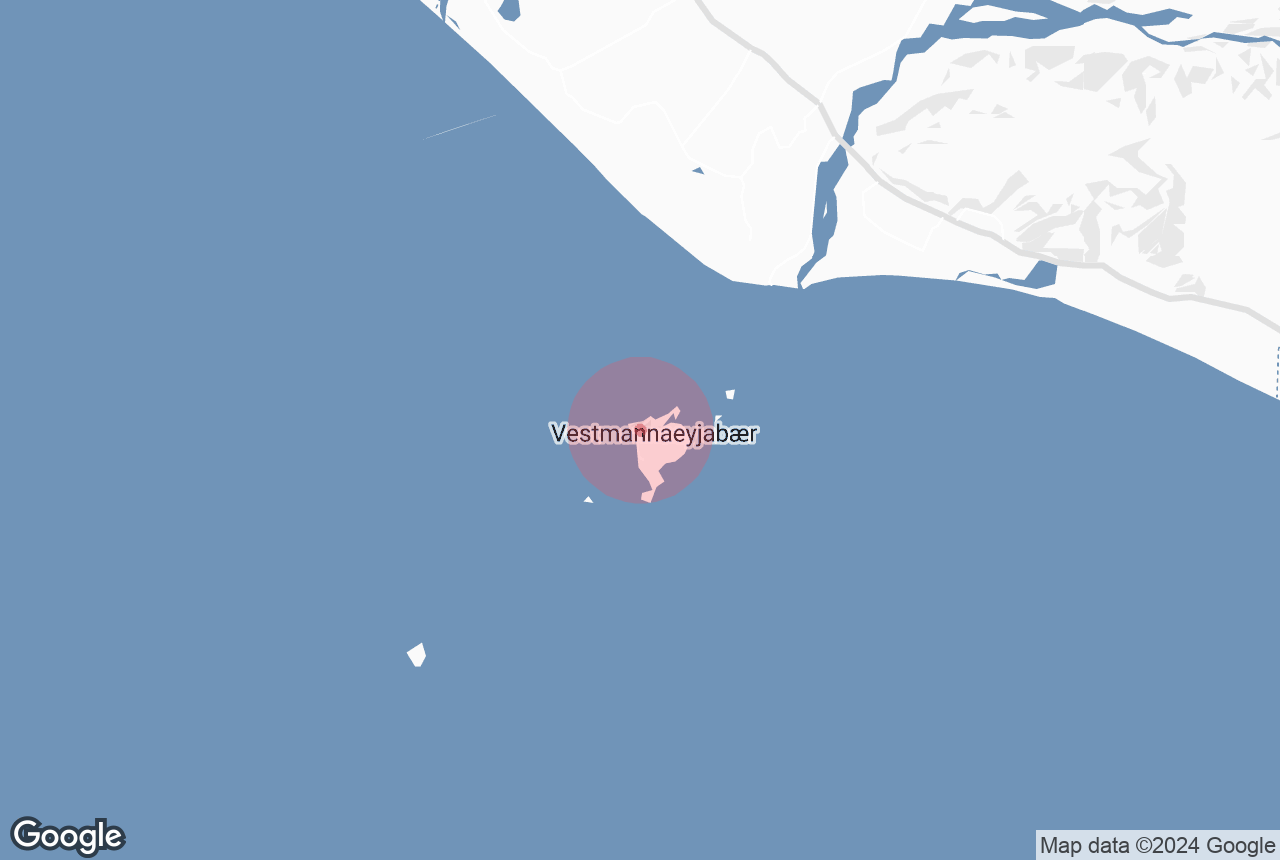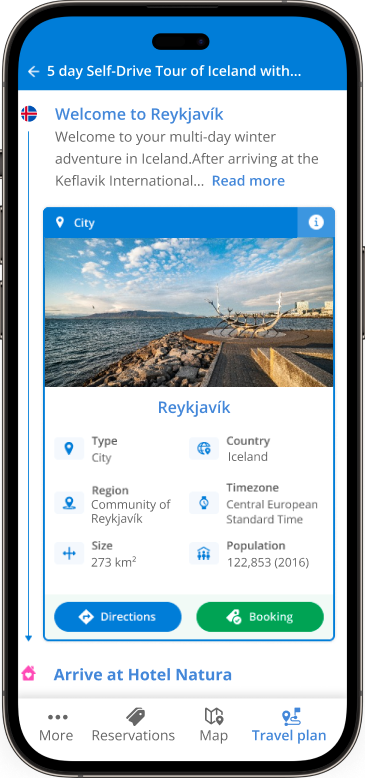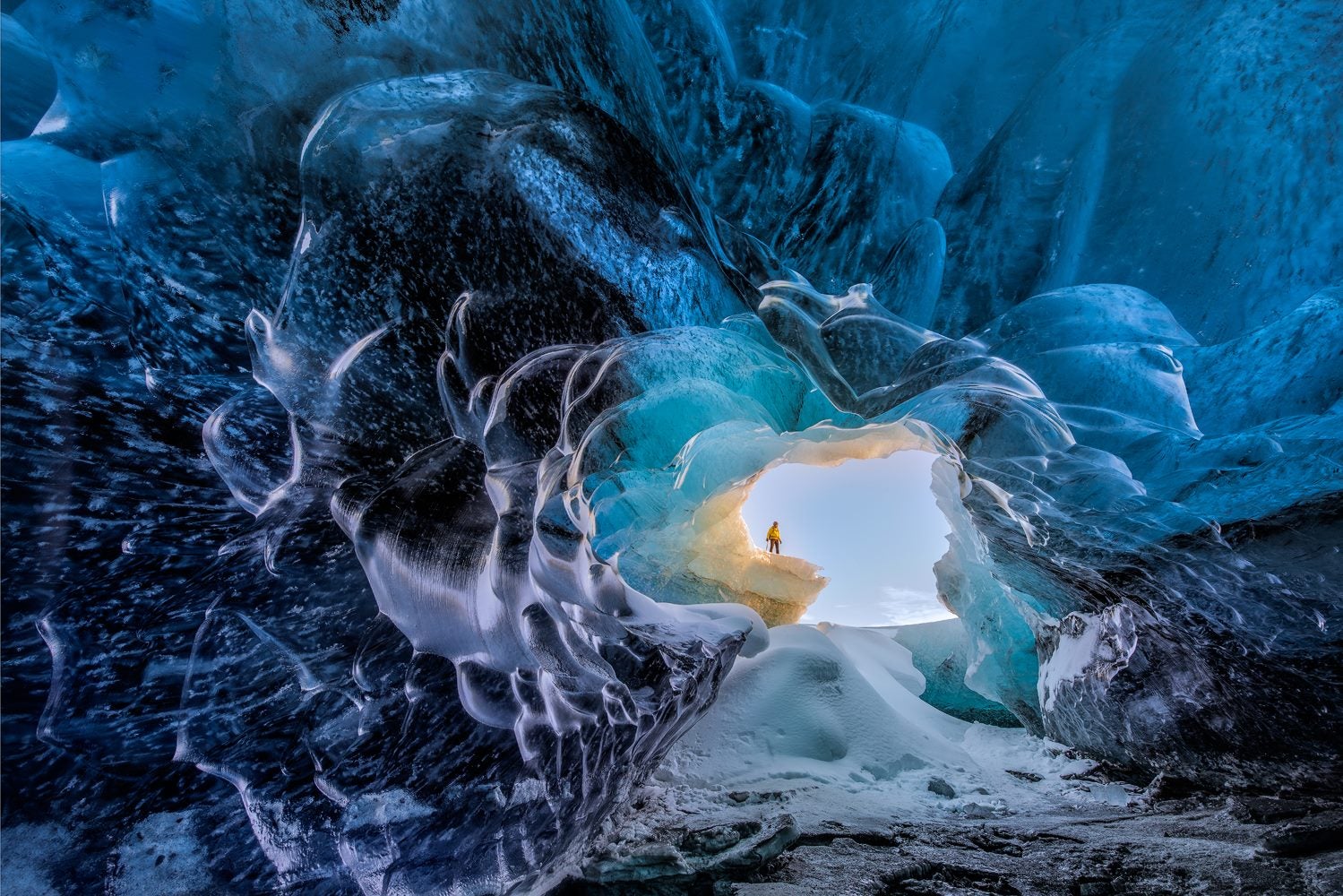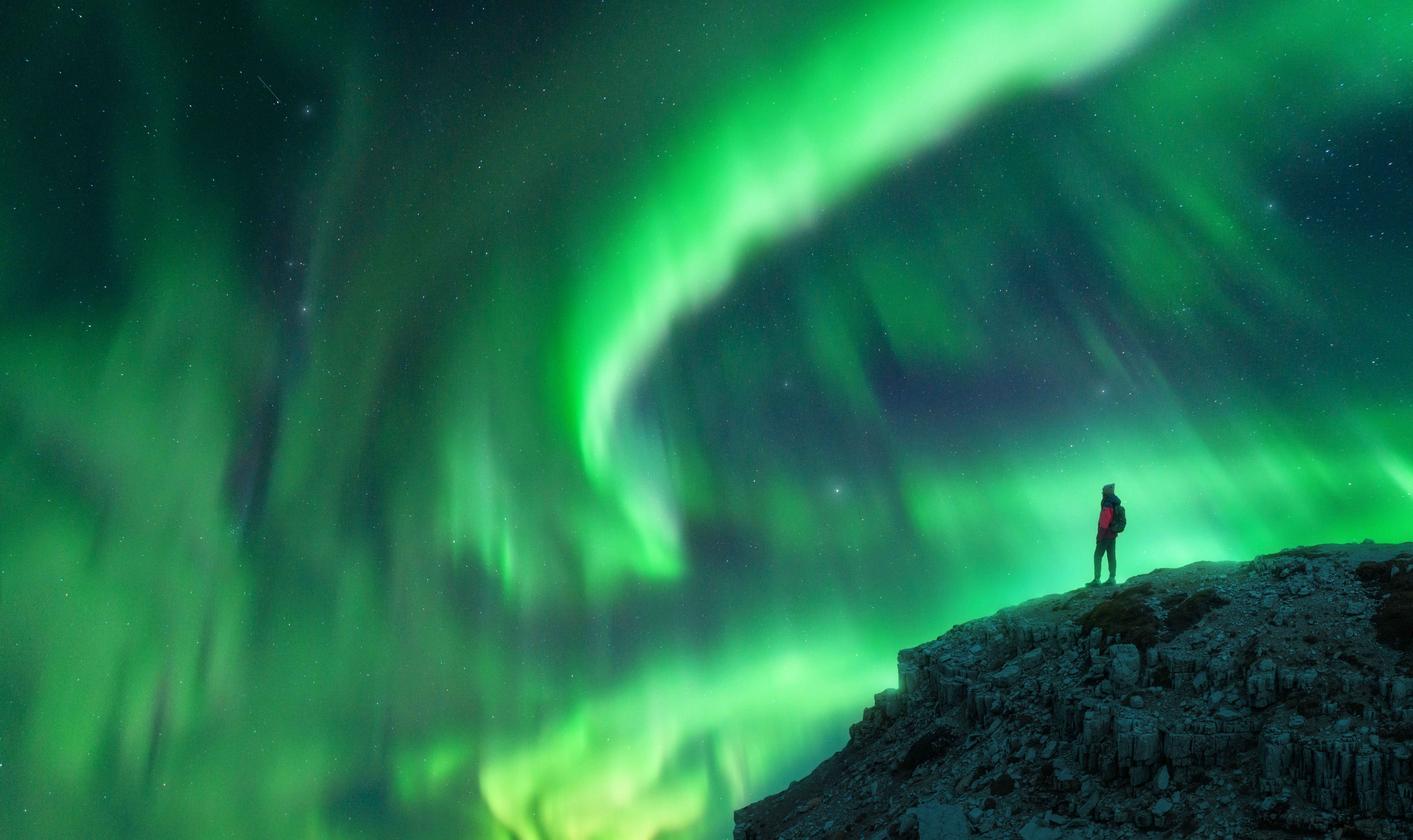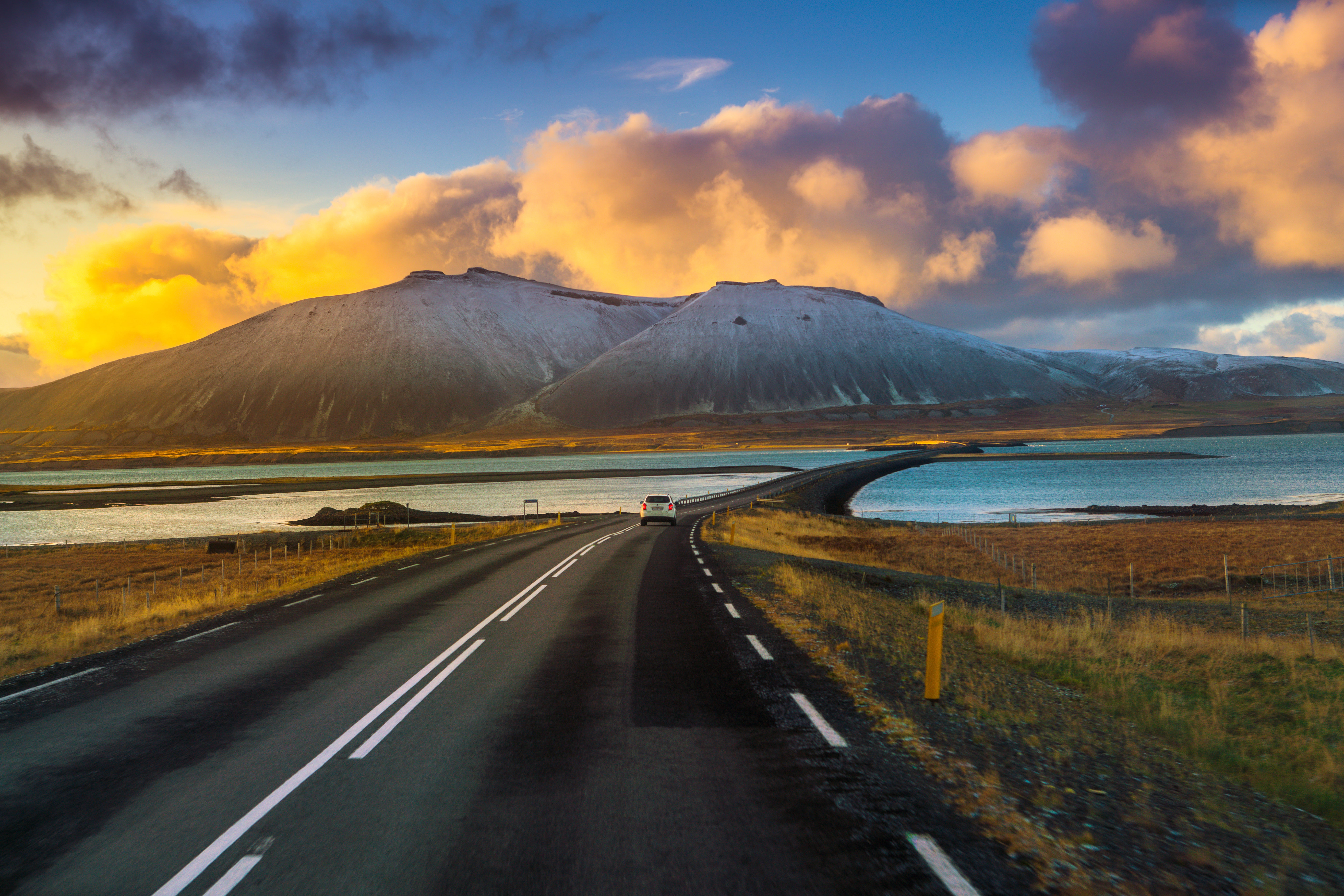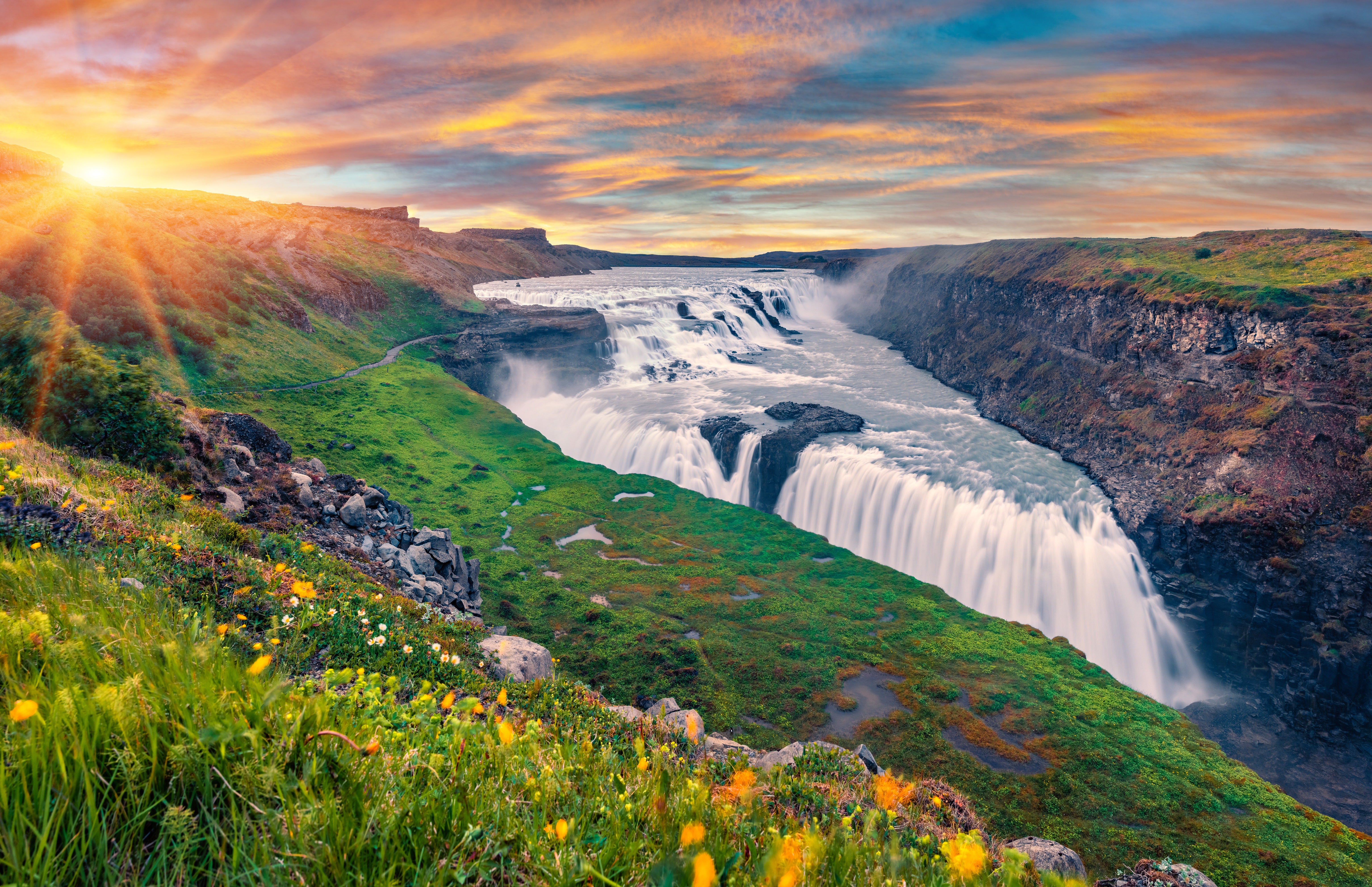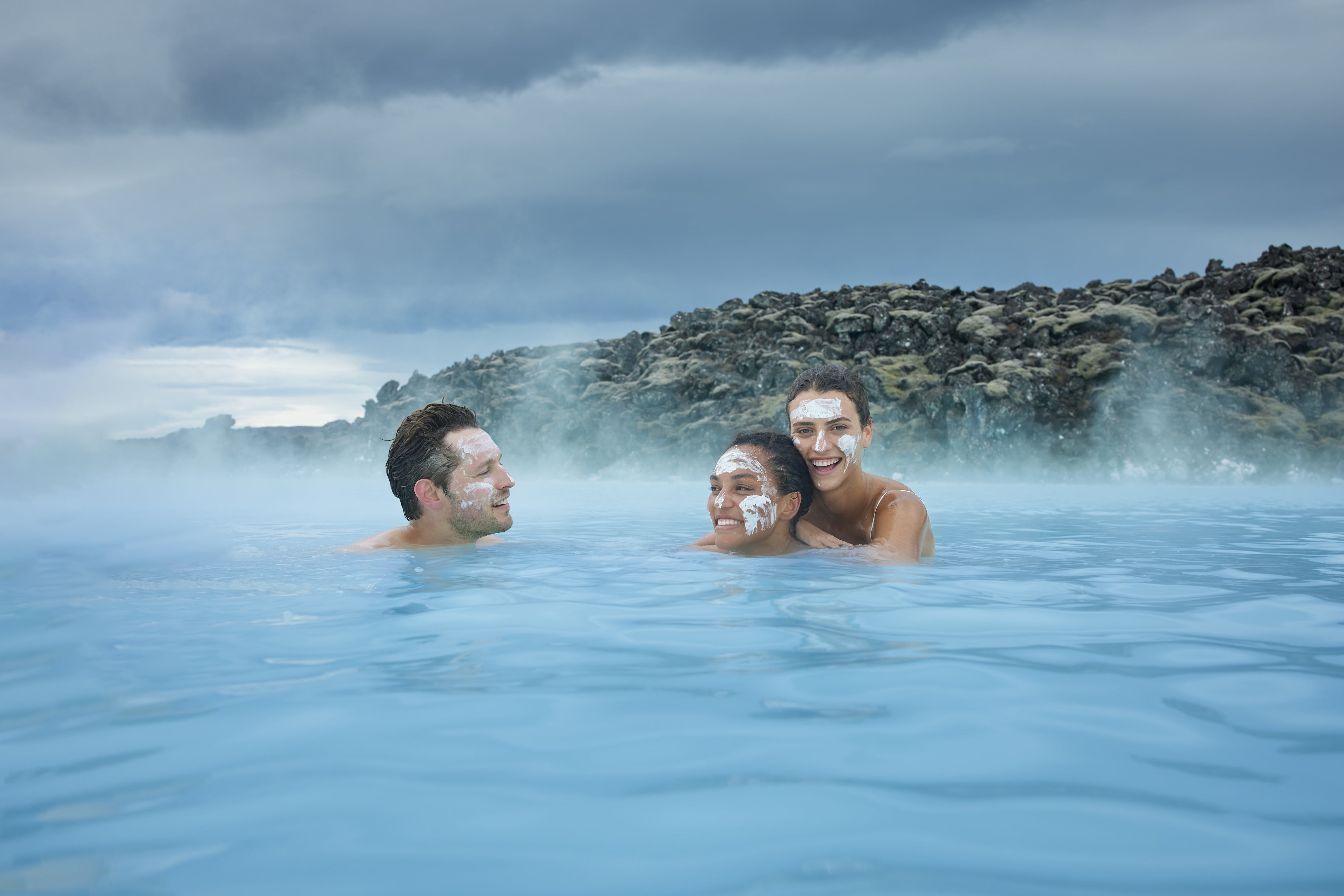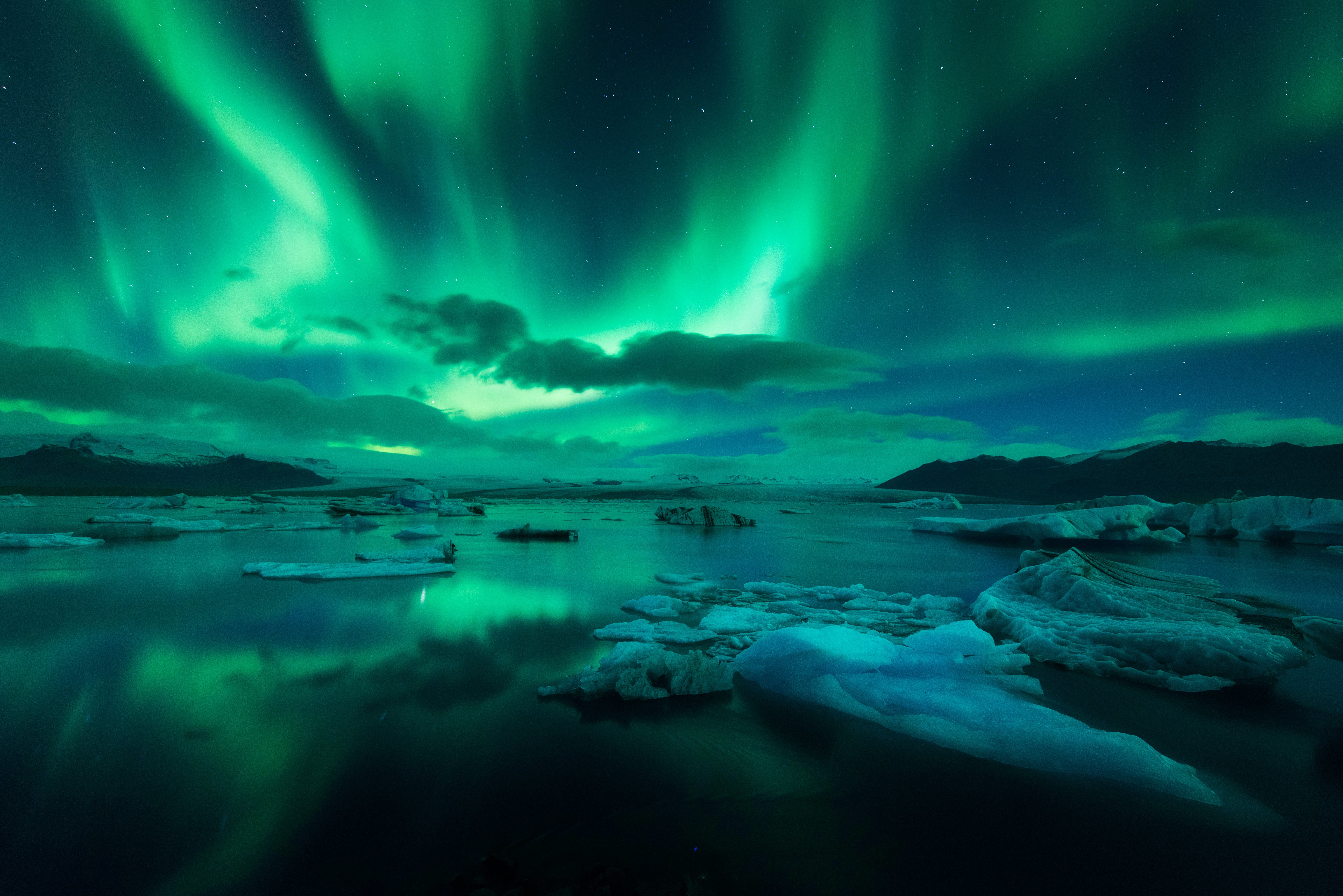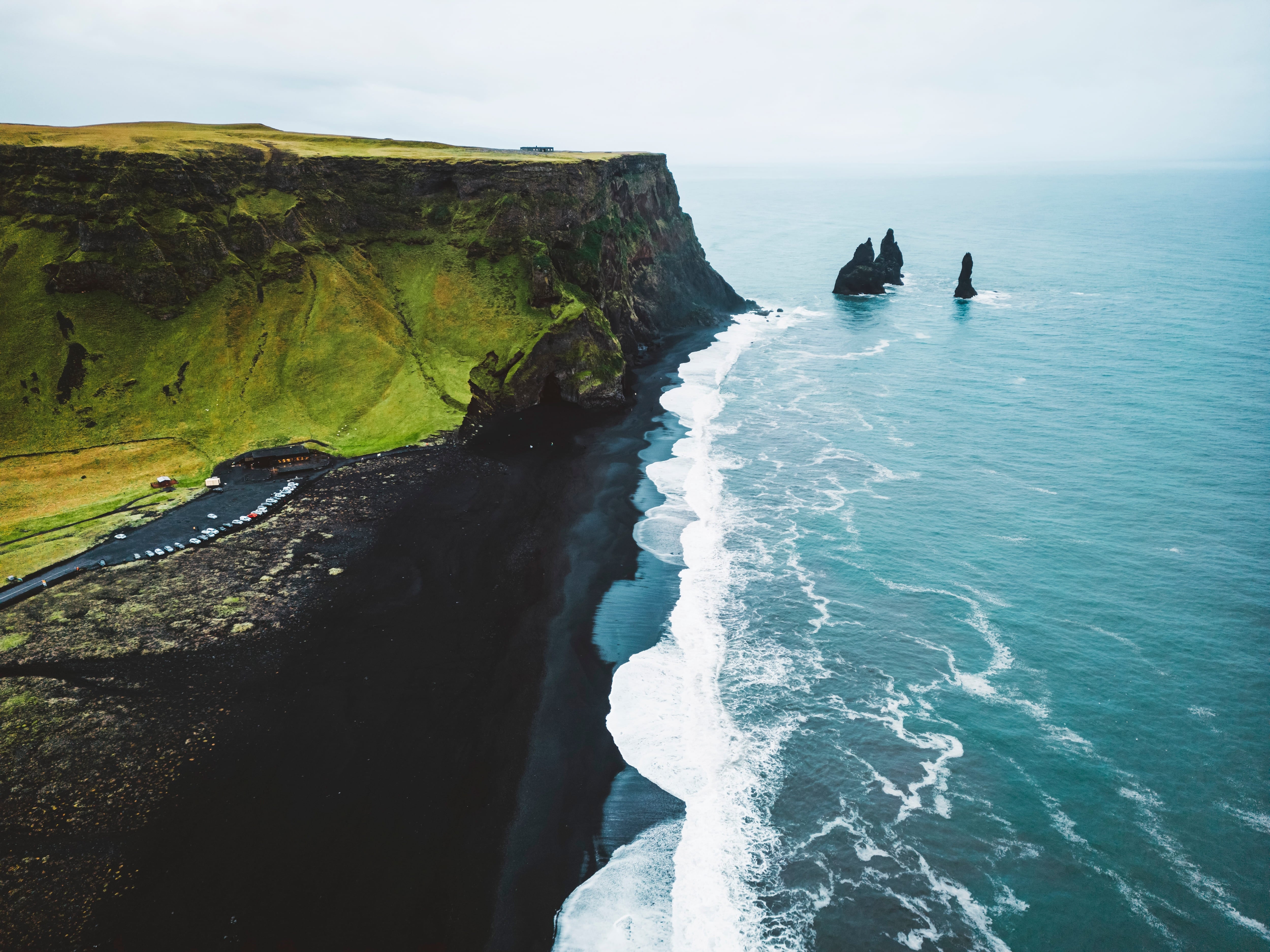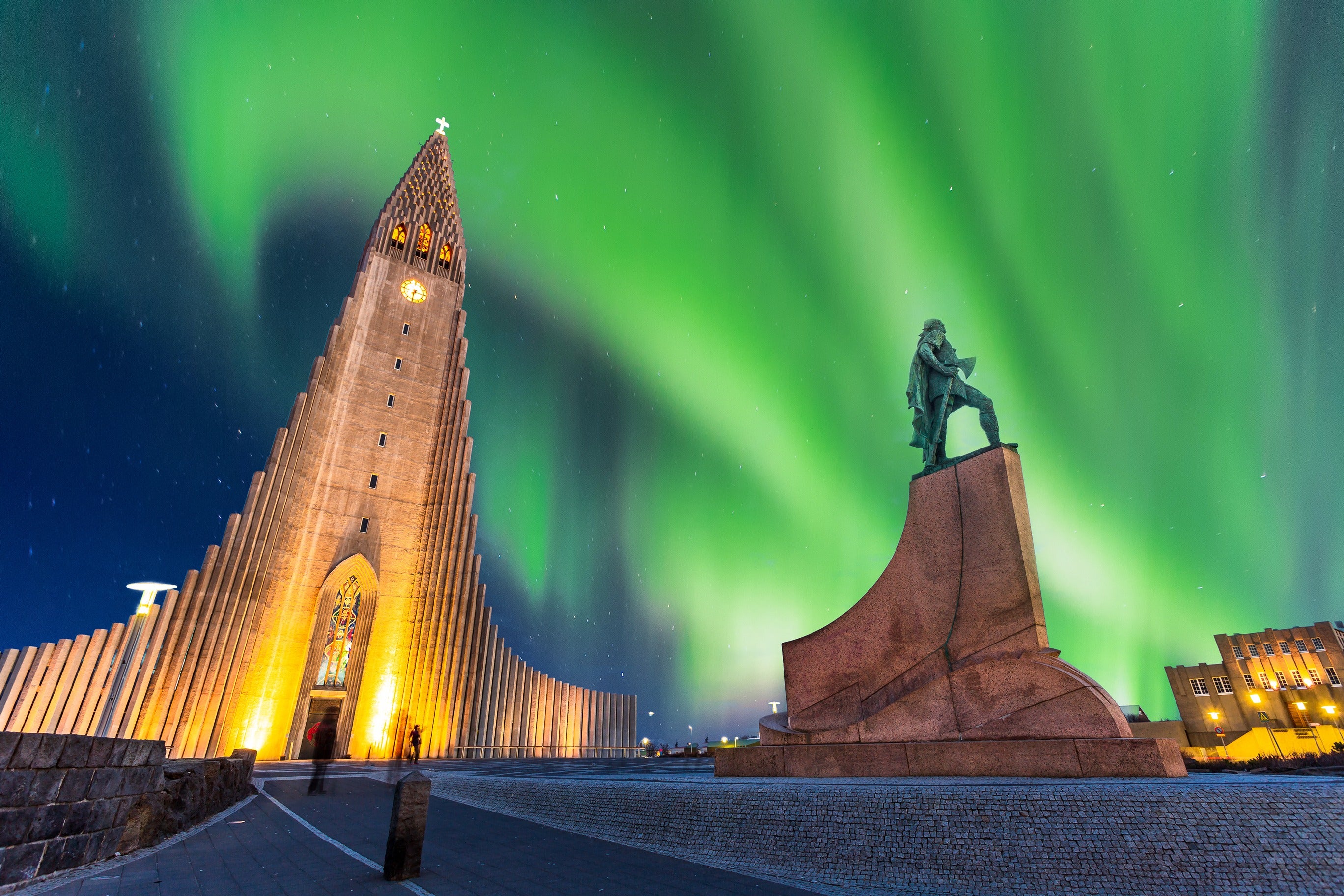
The Herjolfsdalur valley is located on the northwestern coast of Heimaey, the biggest island in the Vestmannaeyjar archipelago. Throughout the 20th century, excavations in Herjolfsdalur led archaeologists to believe that it has one of the oldest human habitations in Iceland.
Herjolfsdalur's historical significance also extends to the celebration of Thjodhatid, one of the top festivals in Iceland. This musical and cultural festival is held in the valley every August, where guests can attend concerts and fun events and taste local food. Most locals camp in the valley, but some choose to stay in Westman Island accommodation for added comfort.
Why You Can Trust Our Content
Guide to Iceland is the most trusted travel platform in Iceland, helping millions of visitors each year. All our content is written and reviewed by local experts who are deeply familiar with Iceland. You can count on us for accurate, up-to-date, and trustworthy travel advice.
Besides its historical significance, the Herjolfsdalur valley is also known for its breathtaking natural features with its green hills, mountains, lava rocks, rugged cliffs, campsite, and open valleys that extend to the North Atlantic Ocean.
To visit the Herjolfsdalur valley, you have to take the Herjolfur ferry from the mainland. This has the advantage of allowing you to bring your rental car with you, but you can also take a domestic flight from Reykjavik Airport. Then, you can book this four-hour clifftop hiking and boat tour in the Westman Islands. You can also choose from a wide selection of Westman Islands tours and add Herjolfsdalur as an extra stop.
Photo above from Wikimedia, Creative Commons, by Hansueli Krapf, cropped.
History of the Herjolfsdalur Valley
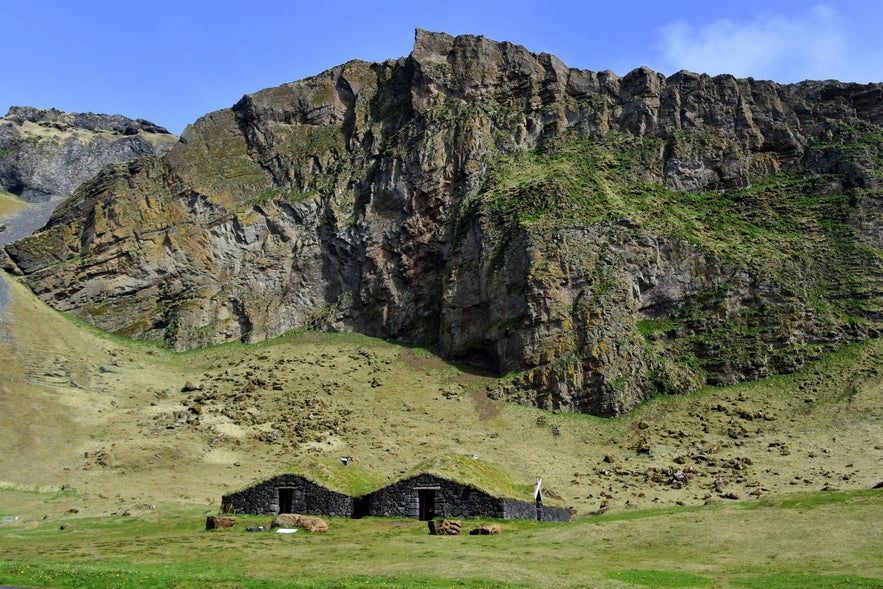
Photo above from Flickr, Creative Commons, by James Stringer. No edits made.
The history of the Herjolfsdalur valley dates back over a millennium and is closely intertwined with the settlement of Iceland by Norse Vikings. The valley is named after Herjólfur, one of the early Viking settlers who arrived in Iceland in the 9th century.
Along with his fellow settlers, Herjólfur established farms and homesteads across the island, including in the fertile lands of Herjolfsdalur. During this time, the valley was thought to be cultivated for agriculture and livestock raising.
In the 20th century, archaeologists and scholars made excavation expeditions in the valley to study its origins and Viking history. The most famous of these were carried out in 1924 by Matthías Þórðarson and from 1971 to 1983 by a team led by Margrét Hermanns-Auðardóttir.
Both studies resulted in groundbreaking archaeological finds that proved the long Viking history of Herjolfsdalur and Heimaey. The most important artifacts were ruins or traces of multiple houses and sheds. One of these constructions was thought to have belonged to Herjólfur.
Thjodhatid National Festival of Vestmannaeyjar in Herjolfsdalur
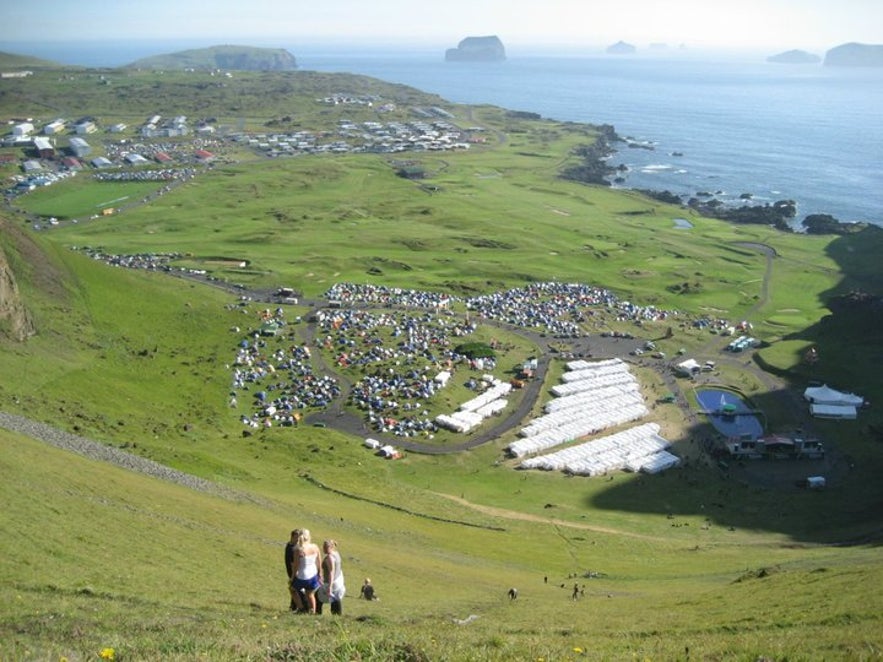
Photo from Wikimedia, Creative Commons, by Hlynz. No edits made.
Thjodhatid (Þjóðhátíð in Icelandic), or the National Festival in the Westman Islands, is an outdoor multi-day celebration held annually in the Herjolfsdalur valley. Drawing thousands of visitors every first weekend of August, the festival is a time of festivities and cultural pride.
Attendees gather in the valley to enjoy live music performances and cultural events. Among its attractions are the white tents scattered around, serving as gathering spots for locals. These are often the liveliest spots to meet new people, hear music, and drink.
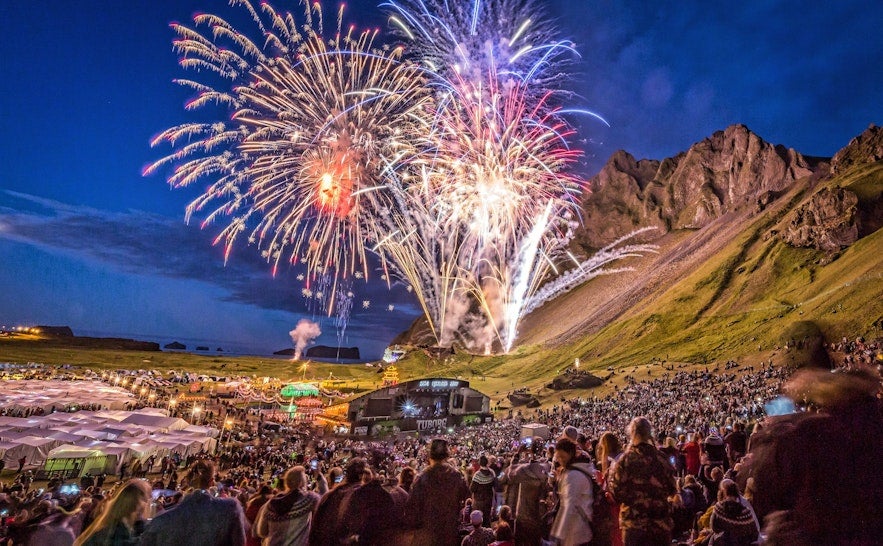
Photo from Þjóðhátíð í Eyjum.
The history of Thjodhatid dates back to 1874 when Iceland celebrated the 1,000th anniversary of the country's settlement by Norse settlers. Bad weather prevented Vestmannaeyjar locals from attending the festivities on the mainland, so they decided to celebrate the event in Herjolfsdalur instead. Since then, the Thjodhatid festival has become one of the most popular celebrations in Iceland.
Travelers planning to attend the festival should find Iceland accommodation in the Westman Islands with very good notice. Alternatively, you can rent camping gear like sturdy tents, hiking boots, and sleeping bags if you prefer to sleep at the valley’s campsite. You can buy tickets on the Tjodhatid website.
What to See and Do in Herjolfsdalur
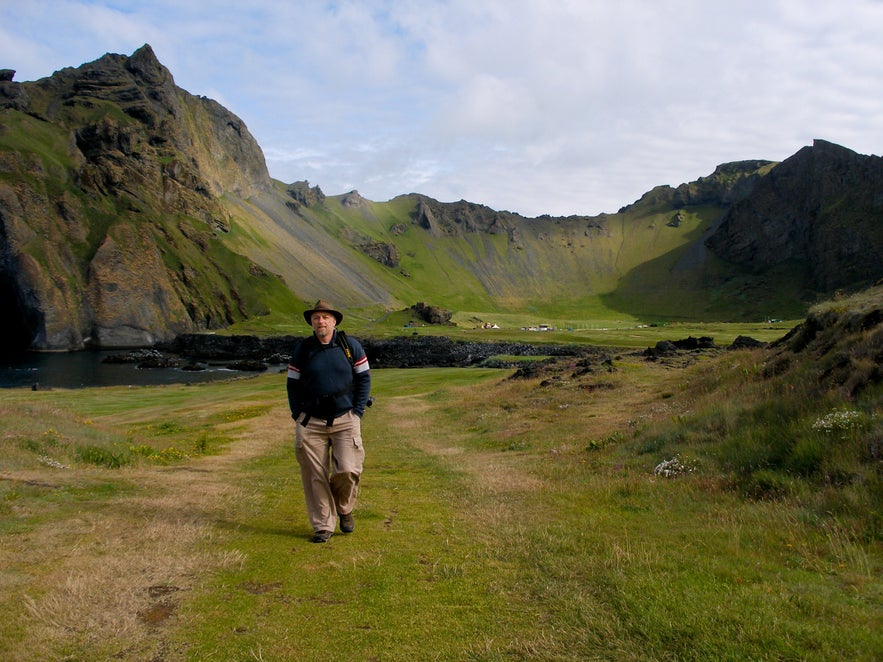
Photo from Wikimedia, Creative Commons, by Thomas Quine. No edits made.
Adventurers and locals enjoy exploring the Herjolfsdalur valley for many reasons, but the most exciting activities here are hiking, sightseeing, camping, visiting a museum, and attending the Thjodhatid festival.
Hiking and Sightseeing
The hiking trails in Herjolfsdalur pass through lush meadows, lava rocks, mountains, and rugged coastlines with stunning views of the North Atlantic Ocean. Birdwatchers will delight in spotting nesting seabirds perched along the cliffs and soaring overhead. The Westman Islands are one of the best places in the world to go puffin spotting, as they have the biggest puffin colony in the world!
Whether you're an experienced hiker seeking a challenging trek or a leisurely walker looking for a peaceful stroll, there are trails in the valley that will suit every level of ability and interest.
Visiting Herjolfstown Viking Wax Museum
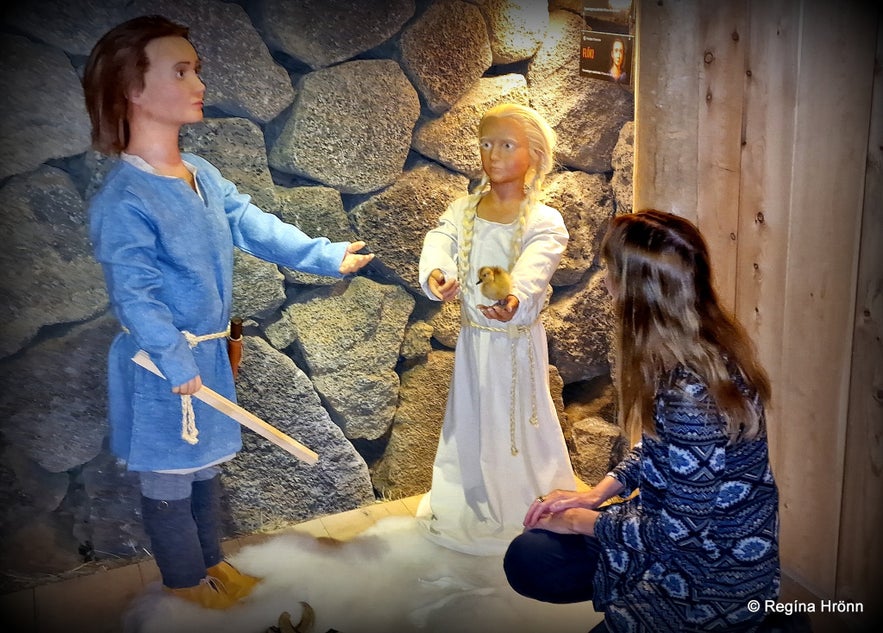
Photo from Regína Hrönn Ragnarsdóttir.
Visiting the Herjolfstown museum in the Herjolfsdalur valley offers a fascinating glimpse into the lives of the early Viking settlers. Here, you can explore a reconstructed Viking longhouse with artifacts, displays, and life-size wax statues. It is open to the public from April to October.
Traveling to the Herjolfsdalur Valley
Traveling to the Herjolfsdalur valley from Reykjavik involves a combination of transportation modes, including driving and ferry with hiking options.
The most common route is to drive from Reykjavik to Landeyjahofn port in South Iceland. The journey takes approximately two hours, covering 84 miles (135 kilometers). At the port, you’ll catch a 45-minute Herjolfur ferry to Heimaey, the largest island in the Westman Islands.
Once on Heimaey, you can drive or hike to the Herjolfsdalur valley, located on the island's northern coast.
What Else to See in Vestmmanaeyjar
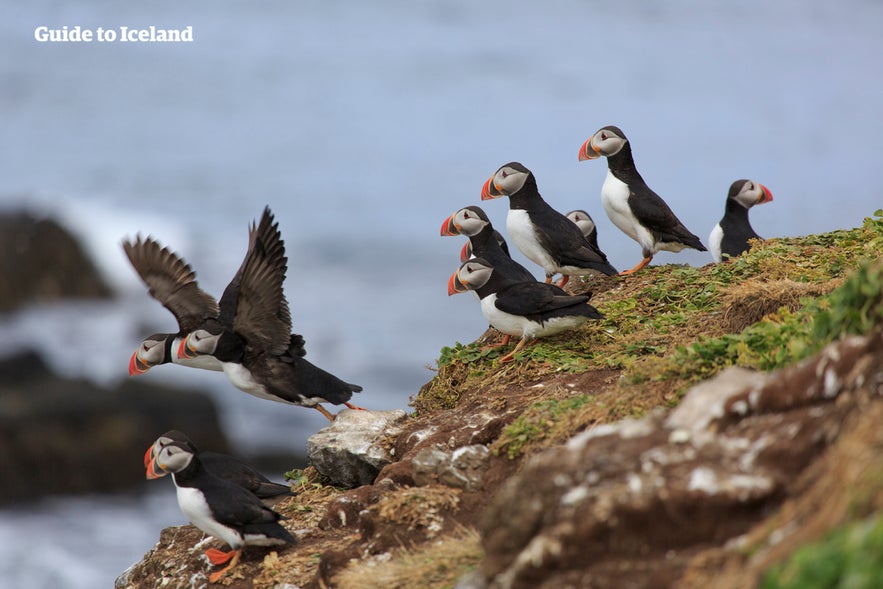 To maximize your Westman Islands experience, don’t miss out on experiencing the following attractions and activities.
To maximize your Westman Islands experience, don’t miss out on experiencing the following attractions and activities.
Visiting the Eldheimar museum in the Westman Islands offers a fascinating journey into the region's volcanic history, showcasing the 1973 eruption that engulfed the town of Heimaey. Visitors can explore interactive exhibits, view artifacts recovered from the eruption, and learn about the resilience of the island's inhabitants.
Afterward, embark on a thrilling puffin-watching adventure along the rugged coastline, where you can witness these charming seabirds nesting on the cliffs and soaring over the Atlantic Ocean.
If you want to see these curious birds with the expertise of a local guide, you can join this Vestmannaeyjar and puffin-watching tour with transfer from Reykjavik or this two-hour kayaking tour with puffins in the Westman Islands.
